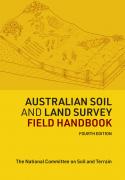As well as being a culture environment for fish and crustaceans, an aquaculture pond is a rich and complex ecosystem that is dominated by the microbial community. The community is nourished by food and sunlight, and is made up of algae, bacteria and, importantly, protozoa. Protozoa live by eating other organisms and detritus, or by absorbing soluble organic matter dissolved in the water. Ultimately they affect water quality in aquaculture ponds, including the stability of algal and bacterial communities, and nutrient concentrations. In addition, some protozoa can have adverse effects on the health of cultured species.
Guide to Protozoa of Marine Aquaculture Ponds is designed to provide a simple means of identifying the main groups of protozoa found in aquaculture ponds through the use of photographs and drawings. This is supplemented with information on the likely effects of protozoa on water quality and the health of the cultured species.
This guide is an indispensable tool for those involved in rearing marine animals, as well as aquaculture researchers and teachers.
Please note that this book is spiral-bound.




















